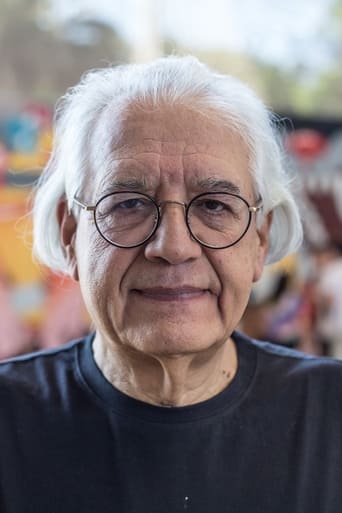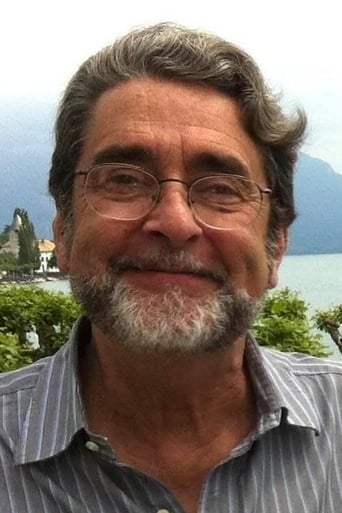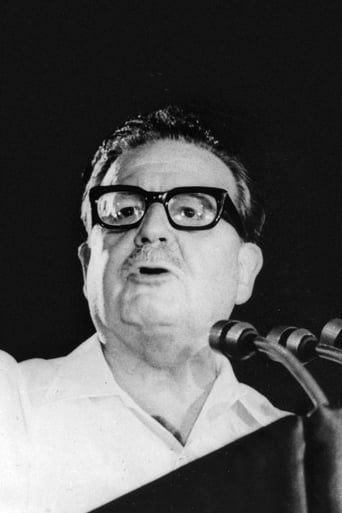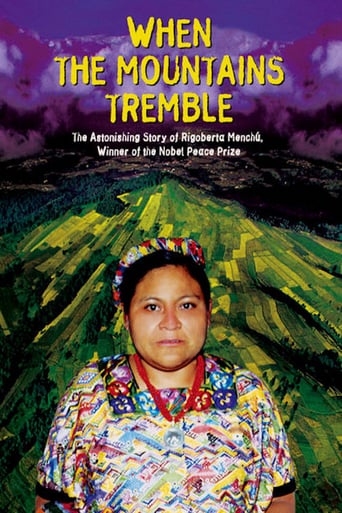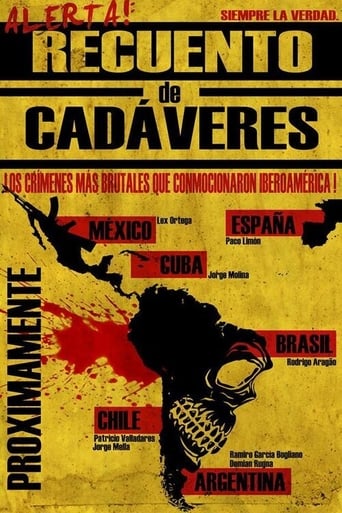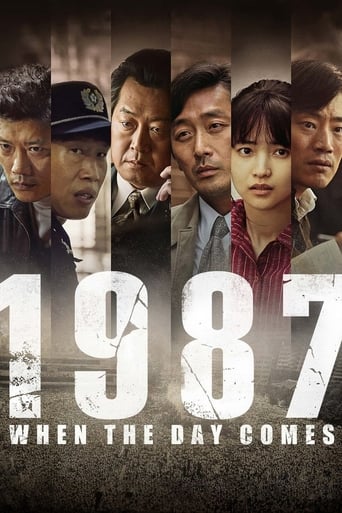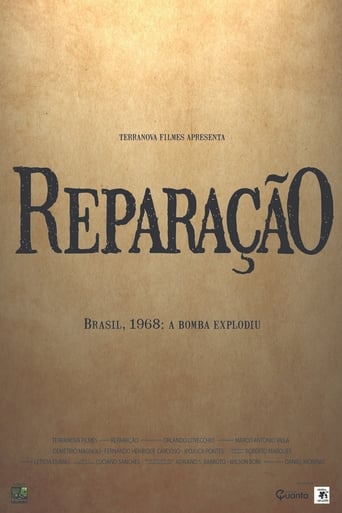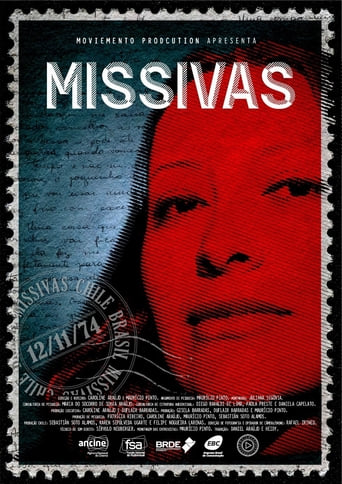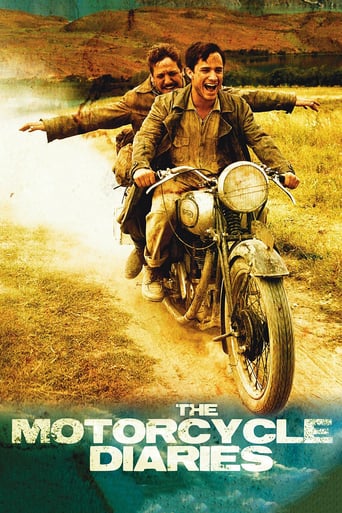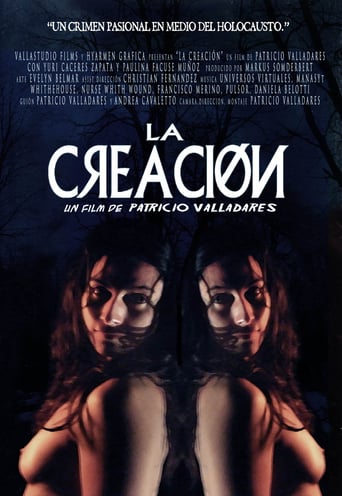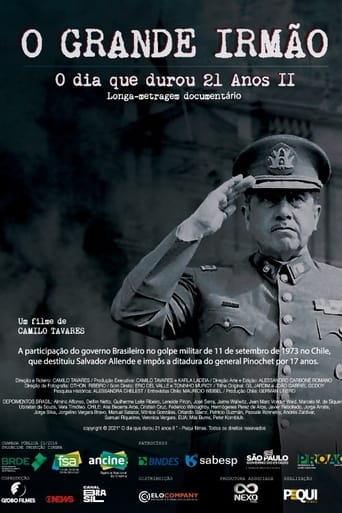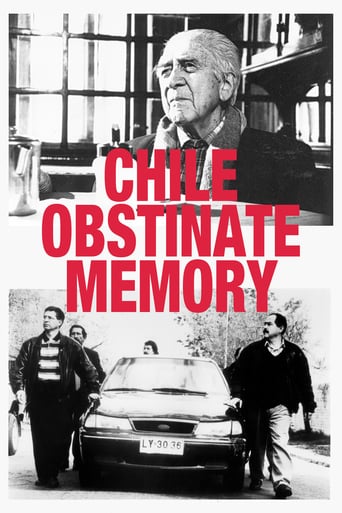

Chile: Obstinate Memory (1997)
After decades of fascist rule in Chile, Patricio Guzmán returns to his country to screen his documentary The Battle of Chile.
Watch Trailer
Cast


Similar titles
Reviews
I was only 9 years-old when President Allende was overthrown in a bloody coup. So, my recollection of the events is naturally VERY sketchy. But, since I taught history, I know a bit more about the events than the average person my age. My advice is unless you are very acquainted with this period in Chilean history, you should first read up on it or, better, see the three-part documentary made by Patricio Guzmán--"The Battle of Chile".This film is a follow-up to these three films. Almost two decades later, Guzmán returns to Chile to interview survivors on the side of President Allende as well as to show his documentaries to young audiences and film their reactions. If you think about it, things have changed significantly in this country, as years ago, he'd have simply 'disappeared' if he'd been caught doing this.The interviews are rather touching but the part I thought fascinating was the HUGE difference between the younger students (they appeared to be high school age) and the college and graduate students. The younger crowd seemed to think that Allende's forced removal was for the best--even if the methods were undemocratic and cruel. As they see it, life is now quite good in Chile and the Marxist system wouldn't have been viable in the long run. The older group was pretty much the opposite--much more nostalgic about the Leftist government and they focused more on the evil way that folks with this political bent were persecuted. Much of this could be because the older group had SOME recollection of the events but also because the younger group seemed to be far less emotional and a bit more pragmatic. I am NOT making a value judgment one way or the other--just making an observation.Overall, a decent film if you understand the events which they are discussing. That's because the documentary doesn't really explain the full story and doesn't try to. While decidedly pro-Left in its sentiments is evident, it does NOT ignore contrary opinions and gives you things to talk about and consider. Worth a look.
This pseudo documentary is just passable, but not that interesting. The people interviewed do have a point of view and it is Leftist, but they simply are not convincing, compelling, or even entertaining.One of the most damning statements the film included was the fact that very few had died to prevent a subjugation of a country's freedom; far fewer than ever in history. Actually, all of the students statements were more balanced than the protagonists' and the most honest part of the film.It's a biased documentary, but there is some interesting historical footage that helps flesh out the conditions of the time.
Patricio Guzman has spent most of his adult life producing film of the fall of Allende in Chile. This film is as pro-left dishonest in its own way as are the pro-right films/books concerning Chile in the 1970's. At no time (perhaps I missed it) did I see any note concerning the fact that the Allende Government was a collaborative government of Socialists & Communists. Without active & massive communist support, Allende would never have been elected.I consider it impossible that one can watch this type of politically generated film and gain an understanding of the complexities of the times. At one point in the film, Guzman states that Allende wanted to make some basic "social changes." A slight understatement of "basic:" (1) Breakup of private land ownership; (2) nationalization of various industries; (3) ousting of all foreign ownership in Chilean companies (as was normal for Socialist/Communist takeovers - no or minimal payout to the foreign owners who has forked over the capital to invest in Chile).......etc.etc.
Not only is the subject interesting but the way the movie has been directed too. The film is built around parallels between today (1997) and Salvador Allende's time in Chile (1970-1973), including Pinochet's coup d'état. We see many people, many places, then and now (Patricio Guzmán was a filmmaker in Chile at that time). We hear all the way Guzmán's uncle trying to play Beethoven's Moonlight Sonata with his 80-year-old fingers and his failing memory, which gives a special color to the whole film. We also hear many thoughtful reflections from interesting people about memory. The final part, where we can see students watching the documentary about Allende's time and the coup, and learn and reflect about the history of their own country, is very moving.One must say however that the way Allende's experience is presented is one-sided. People are correct when they say that Allende and his supporters had a dream about democracy and justice, but nowhere is there any hint that at the time of the coup, the country had been in a social and economic chaos for two years because of Allende's poor results as a government. Of course, that can't excuse Pinochet's regime, but it could have added a useful dimension to the whole story. Anyway, the movie is not an apology for Allende as much as a reflection about remembering painful personal and collective events after almost a quarter of a century.


